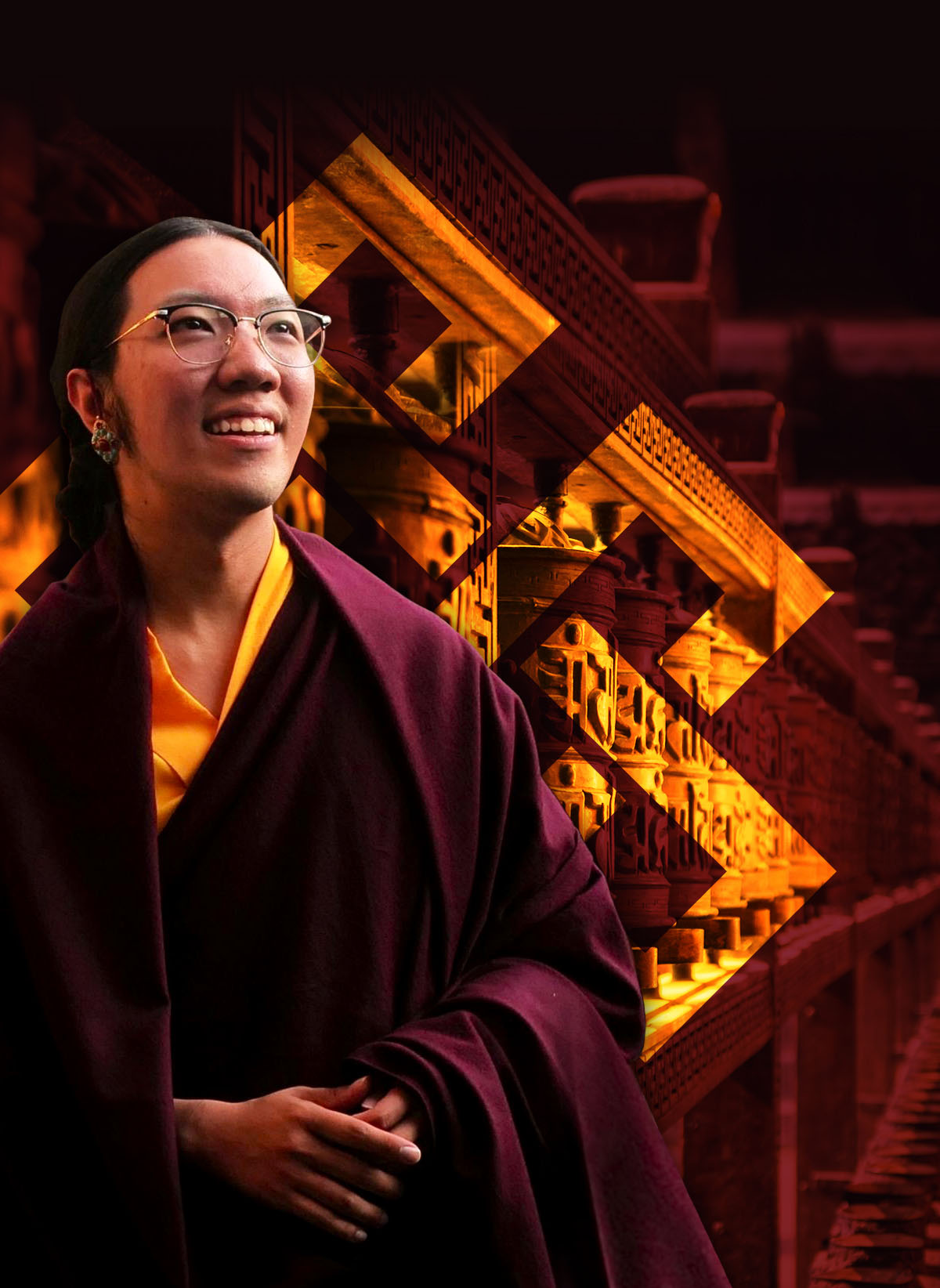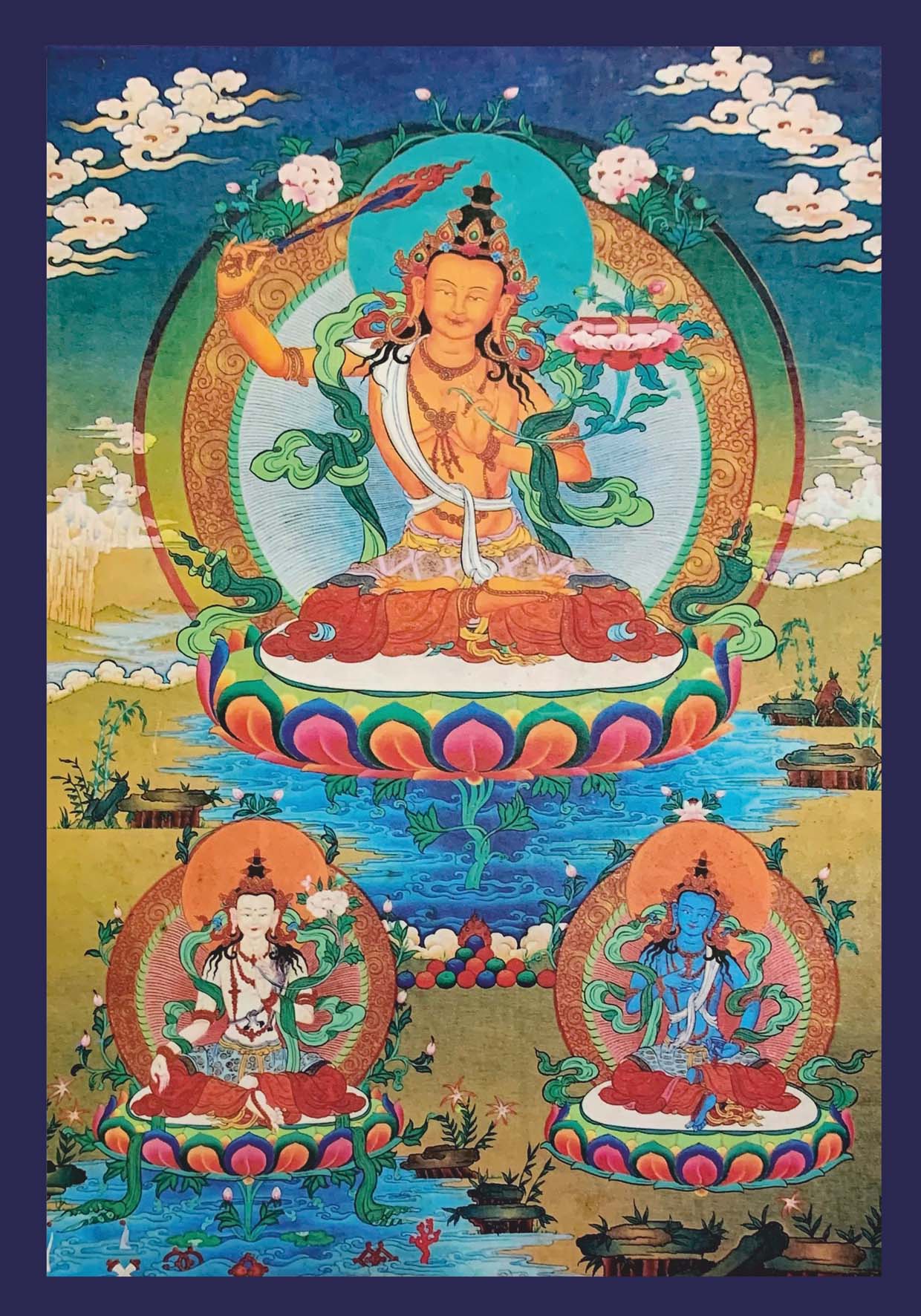
Orange Mañjuśrī Arapatsana Blessing Empowerment
We warmly invite you on Sunday, November 23, to the Empowerment of Manjushri, who embodies the wisdom of all Buddhas and Bodhisattvas.
This sacred transmission will be bestowed by one of the foremost Tibetan spiritual masters of our time —
His Eminence Khöndung Asanga Vajra Sakya Rinpoche
This is a rare and precious opportunity to receive introduction to the understanding of the true nature of our mind from a highly respected spiritual teacher — the future Throne Holder (Sakya Trizin) of the Sakya tradition of Tibetan Buddhism.
Sunday, November 23, 10.00 a.m.
Venue: Tibet Open House, Školská 28, Prague, Czechia
Language: English with interpretation into Czech.
Contact: info@siddhartha.cz, +420 777 178 129
Jeho Eminence Khöndung Asanga Vadžra Sakya Rinpočhe
His Eminence Asanga Vajra Rinpoche, the future Sakya Trizin (Throne Holder of the Sakya lineage), was born into the Phuntsok Phodrang family. He is a direct descendant of the unbroken Khön lineage, which has continued uninterrupted since its founding in 1073.
Rinpoche is the son of His Eminence Khöndung Ani Vajra Sakya Rinpoche, the second son of His Holiness Jigdal Dagchen Dorjechang Rinpoche, and Dagmo Chimey-la.
On his mother’s side, he is the grandson of His Eminence Garje Khamtrul Rinpoche, a great master of the Nyingma tradition.
You can find more information about Rinpoche's life here.
What is an Empowerment?
Empowerment is a traditional Vajrayana ritual through which, by means of meditation, visualization, and prayers, we receive the blessing of the Buddha. This blessing activates the enlightened qualities of the true nature of our mind and enables us to cultivate them through a series of transformative practices.
The blessing is transmitted through an unbroken lineage that traces directly back to the Buddha himself, passed from master to student up to the present day.
During the ritual, the master offers instructions on the visualizations and prayers necessary to receive the empowerment. By receiving it, one establishes a special karmic connection with the teacher, the lineage of masters, and the specific Buddha associated with the empowerment. This also grants permission to engage in meditations and other practices designed to help us realize the same enlightened state. Empowerment supports the development of deeper compassion for all sentient beings, the purification of negative karma and obscurations, and the cultivation of wisdom and insight into the true nature of reality.
The full benefit of empowerment usually unfolds through ongoing study, practice, and guidance from a qualified teacher.

The Orange Manjushri Arapatsana Blessing Empowerment
The Bodhisattva Manjushri embodies the transcendent, primordial wisdom of all Buddhas and Bodhisattvas.
Through this empowerment, we are guided toward recognizing the true nature of our own mind, which naturally possesses the enlightened qualities of wisdom realizing emptiness, non-dual loving-kindness and compassion, and the power to overcome all obstacles and obscurations. These enlightened qualities form the very essence of the path — the principal causes that lead to the realization of Buddhahood.
This empowerment ritual follows the Tathāgata family of the Charya Tantra.
Vows and Commitments
As an integral part of the empowerment, both refuge vows and bodhisattva vows are bestowed. Tantric commitments accompany the practice of Tantra.
For this reason, this event is exclusively for Buddhists or those who wish to become Buddhists.
While there is no requirement for a daily sadhana practice after receiving this empowerment, participants may choose to voluntarily commit to a regular practice.
Refuge Vows
Taking refuge is the foundation of all Buddhist practices and the gateway to all vows. It involves taking refuge in the Three Jewels—Buddha, Dharma, and Sangha. The motivation to take refuge arises from the fear of suffering in samsara, compassion for others, and confidence in the Three Jewels. By taking refuge, we formally become Buddhists, committing to regard the Buddha as our teacher, the Dharma as our path, and the Sangha as our companions. After taking refuge, we must refrain from harming any being.
Bodhisattva Vows
The Bodhisattva vows commit one to the path of a bodhisattva, aspiring to attain Buddhahood for the benefit of all beings. This vow involves a commitment to selflessness, prioritizing the well-being of others, and practicing accordingly. There are two kinds of bodhicitta:
- Relative Bodhicitta: The aspiration to attain Buddhahood for the benefit of all beings and the determination to train in the methods necessary to achieve this goal.
- Absolute Bodhicitta: The direct realization of the absolute nature of phenomena, or primordial wisdom.
Tantric Commitments
In addition to the Refuge and Bodhisattva vows, Tantric practice involves specific commitments. These include respecting all beings, avoiding harm, and actively striving to help others.
How to participate
→ In-person only – this event will not be streamed
→ On Sunday, November 23, from 10:00 a.m. to 12:00 noon
→ In Tibet Open House, Školská 28, Prague, Czechia


